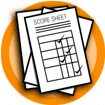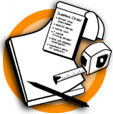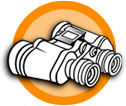|

Now that the 'How do your skills Measure Up?' site has been available for a few months,
we have been gathering ideas from user groups across Canada to provide
you with effective ways to use this tool.
If you would like to contribute your ideas, please contact us.
'How do your skills Measure Up?' provides instructors
and learners with an easy to use web based resource to test, practice
and explore three of the Essential Skills needed in all types of
occupations: reading text, document use, and numeracy.
'How do your skills Measure Up?' is of particular interest to:
 Test
Your Skills Test
Your Skills
Test
your student’s skills
Teaching workplace skills to your Career Prep students? Test Your Skills
provides an easy to use tool for assessing student competency. It will
give you a preliminary idea of how your students’ skills compare with
those presented in the more than 170 occupations posted at HRSDC’s
Essential Skills website.
Use Test Your Skills at the beginning of your unit (pre-test)
to assess your students’ current skill level. Then, as you cover skills
in the classroom, use Test Your Skills to assess what your
students have learned (post-test). As the level of difficulty of the
skills you teach increases, so does the level of difficulty that Test
Your Skills assesses for. You can also use Test Your Skills to
test the skills your students have acquired through career education
or work placements.
[top
of page]
 Practice Practice
Practice
makes perfect
With practice, comes skill growth. Completing these activities will
give your students more experience filling in forms (document use),
reading regulations (reading text), calculating numbers (numeracy)
and other workplace tasks.
Does a
student need to practice reading text? Choose from Labels or Forms;
Notes, Letters, Memos; Manuals, Specifications, Regulations; or Report,
Books, Journals. Practice generates an authentic workplace
example of reading text in the requested format. Start simple and
build in difficulty as your students demonstrate mastery.
Develop
classroom activities
Use Practice to help you develop instructional activities to
complement your Career Education program. Create lessons that test
skills at progressively more difficult levels. Duplicate workplace
situations described in the question portion of the problem set and
assess student performance using the answers.
Teach
the thinking process
There are two forms of answers: (1) the answer; and (2) a detailed,
step-by-step description of one approach you could take to reach that
answer. These expanded answers highlight the thinking required to arrive
at the answer. It is this thinking process that is the most transferable
skill of all. Use these steps to show your students how they might
apply a similar approach to other tasks. Once they have learned how
to critically examine a task and break it down into a series of manageable
steps, they can apply this method to many other tasks.
[top
of page]
 Explore
Careers Explore
Careers
Develop
classroom activities
Need real work examples to give you ideas for developing classroom
activities? Want to show how a skill that you teach is used in a particular
occupation or set of occupations? Need to highlight the relevance
of what you are teaching? The Explore Careers section highlights
over 90 occupations profiled by HRSDC’s Essential Skills Project. Occupations
are sorted by name or National Occupation Codes (NOC). Select one of
the occupations and you will be taken to a page that provides a brief
description of that occupation as well as an opportunity to try some
activities typical of that work place position. It also has links to
the full profiles at the HRSDC Essential Skills database and additional
information at the NOC database.
Prepare
for career fairs, workplace visits, guest speakers and internships
Explore Careers provides almost everything you could want to
know about 75 specific occupations. For each occupation, you are provided
with a simple description and links to more detailed information. One
link connects you to the HRSDC site that itemises and provides examples
of all the Essential Skills required by workers in that occupation.
Another link directs you to HRSDC’s NOC Search Engine where you will
get detailed information on the main duties performed by and employment
requirements of these workers, as well as links to similar occupations.
[top
of page]
 Tips Tips
-
You
don’t have to be online in order to use How do your skills Measure Up in your classroom. If you have Adobe Reader 5.0,
with just a couple of clicks of your mouse you can open and print
one document that contains the questions and answers for each
problem set. Then you have paper versions that you can use anytime,
anywhere. Use them to plan lessons. Or, photocopy the questions
for students who don’t have access to a computer.
-
For
more ideas on using Test Your Skills, Practice, and Explore
Careers as self-directed assessment tools, check out Students
and Workers.
[top of page]
 Test
Your Skills Test
Your Skills
Test
your learners’ skills
Do you need to design classroom activities or programs to meet the
individual needs of your learners? Do you want to assess the range
of skills possessed by learners who may have diverse occupational experiences?
Do you want to help your learners set personal skill development targets? Test
Your Skills provides you with an easy to use tool to assess the
individual skill sets of your learners. With the resulting information,
you will be able to group learners of similar abilities or backgrounds
to work together to explore new skills. Or, conversely, you may wish
to team up learners with diverse backgrounds and skill sets so that
they may learn from each other.
[top
of page]
 Practice Practice
Practice
for the real world
If you have learners that are retraining
to enter the workforce or exploring new career fields, Practice provides
them with a valuable tool for developing basic skills used in real
workplace settings. For example, learners who lack confidence when
working with numbers might want to build their skills by practicing Numeracy.
Here, they can work through practice activities in Money Math;
Scheduling, Budgeting and Accounting; Measurement and Calculation;
and Data Analysis.
Bring
real world examples into the classroom
Practice also provides an
easy to access bank of authentic work place examples to integrate into
your adult education program. These examples can provide the inspiration
for new instructional activities or they can supplement existing lesson
plans. For many learners the inclusion of authentic work place examples,
using skills they are learning in the classroom, will make for a richer,
more relevant learning environment.
Teach
the thinking process
There are two forms of answers:
(1) the answer; and (2) a detailed, step-by-step description of one
approach you could take to reach that answer. These expanded answers
highlight the thinking required to arrive at the answer. It is this
thinking process that is the most transferable skill of all. Use these
steps to show your learners how they might apply a similar approach
to other tasks. Once learners have learned how to critically examine
a task and break it down into a series of manageable steps, they can
apply this method to all other tasks.
[top
of page]
 Explore
Careers Explore
Careers
Explore
options
Are some of your learners rethinking
their present occupations or training for new ones? Explore
Careers will help you to help them learn more about specific occupations.
Here they will find out more about the Essential Skills required for
75 occupations ranging from Babysitters, through Greenhouse Workers,
and Wastewater Plant Operators. For each occupation, they will find
a basic description, sample job titles, detailed information on Essential Skills required, and a description of duties and employment requirements.
Then, they will get an opportunity to explore some activities typical
of that occupation. In conjunction with Test Your Skills and Practice, Explore
Careers will help learners assess whether occupations in which
they are interested will be a good match to their current skill sets,
interests, and life goals.
[top
of page]
 Tips Tips
-
For
more ideas on using Test Your Skills, Practice, and Explore Careers
as self-directed assessment tools, check out Students
and Workers.
[top
of page]
|
Career
Counselors and Employment Trainers |
 Test
Your Skills Test
Your Skills
Test
your clients' skills
When new clients come to you for help with retraining or advice on
changing careers, Test Your Skills is an invaluable tool for
helping to assess their existing skill sets. Whether guided by you
or self-directed (refer to Students and Workers for
more information), your clients will be able to try out a wide range
of occupational skills in Reading Text, Document Use,
and Numeracy, at varying levels of difficulty.
Although
it is an informal assessment, it will give you a good idea of how
your clients’ skills match the ones described in HRSDC’s Essential
Skills Profiles. You and your clients can see their skill strengths
and areas needing improvement. With this information, you can help
clients explore careers that are a good match to their existing skills
or you can help them focus on developing their skill areas so they
can pursue careers of interest.
Test
Your Skills can also help clients to assess their own skills
in preparation for resumes, job interviews, or training. And, it
can provide an introduction to some of the requirements of jobs
or career fields that interest them.
[top
of page]
 Practice Practice
Practice
building your skills…
Show your clients how what they
are learning can be applied in the workplace. Practice allows clients
to work with activities that will help them build skills in the areas
of reading text, document use, and numeracy in careers they are interested
in exploring. And, it allows them to gain additional experience practicing
skills required in careers of interest to them.
…and
build your confidence
Clicking on Skill Type and
selecting a specific area to practice presents clients with a set of
questions and answers relating to authentic workplace applications.
Ultimately, Practice gives clients the opportunity to build
confidence in their ability to succeed in the workplace by helping
them to build job skills before they even apply for a job.
Examine
the thinking process
There are two forms of answers:
(1) the answer; and (2) a detailed, step-by-step description of one
approach you could take to reach that answer. These expanded answers
highlight the thinking required to determine the answer. It is this
thinking process that is the most transferable skill of all. You can
use these steps to show your clients how they might apply a similar
approach to other tasks. Once they have learned how to critically examine
a task and break it down into a series of manageable steps, they can
apply this method to many other tasks.
[top
of page]
 Explore
Careers Explore
Careers
Explore
Explore Careers provides
the most immediately relevant tool for clients who are interested in
doing just that, exploring careers. Whether retraining for a job similar
to one already held or looking to make a change, clients will benefit
by being able to explore more detailed information on over 90 jobs, cross-referenced
to HRSDC’s Essential Skills Profiles.
For each
occupation, clients will find a basic description, sample job titles,
detailed information on Essential Skills required, as well as a description
of duties and employment requirements. Then, they get an opportunity
to explore workplace activities typical of that occupation.
Explore
Careers gives clients a wealth of career information in one
easy to navigate, clearly organized area. For some clients who
have a well-developed, varied skill set, this part of the site
may be the only area they need to visit.
[top
of page]
 Tips Tips
-
For
more ideas on using Test Your Skills, Practice, and Explore Careers
as self-directed assessment tools, check out Students
and Workers.
[top
of page]
Need a self-directed assessment
tool?
If you are a high school, college,
or university student, you may be wondering what you would like to
do for a career. You may be looking for a summer job or co-op placement.
Or, you may be unfulfilled in your present job and ready for a change. How do your skills Measure Up is a great tool to help you assess your
current skills, identify what new skills you may need, practice those
skills, and explore careers and the specific skills they require. If
you have access to a computer, you have access to a valuable, easy
to use, self-directed assessment and learning tool.
[top
of page]
 Test
Your Skills Test
Your Skills
Do you
have what it takes?
Need help finding out what skills
you have? Are they the skills you will need in your future job? This
information might influence your future career options. Test Your
Skills will give you a good idea of how your skills compare with
the ones described in the more than 200 occupations profiled in HRSDC’s
Essential Skills website.
Test
Your Skills is easy to use as a self-directed assessment tool.
Start at Level 1-2. Once you get 80% on two self-assessments, move
to the next level. The site provides questions and answers in a
printable, portable, document format. Work on your own or with
a partner testing each other. As your skills grow through practicing
work place skills in the classroom, or career placements, you can
use Test Your Skills to track your progress. As your skills
grow, you can watch your career options multiply!
[top
of page]
 Practice Practice
Practice
now for future opportunities
You may want to practice specific
work place skills before applying for a job. Completing Practice activities
will give you more experience filling in forms, reading regulations,
calculating numbers and other workplace tasks. Or, you might want to
find out how skills you are learning in the classroom are used in the
every day world of work.
Practice
the thinking process
There are two forms of answers:
(1) the answer; and (2) a detailed, step-by-step description of one
approach you could take to reach that answer. These expanded answers
highlight the thinking required to arrive at the answer. It is this
thinking process that is the most transferable skill of all. Examine
these steps and explore how you might apply a similar approach to other
tasks. Once you have learned how to critically examine a task and break
it down into a series of manageable steps, you can apply this method
to many other tasks.
[top
of page]
 Explore
Careers Explore
Careers
Explore
your options
If you are a high school, college,
or university student, Explore Careers will provide a valuable
bank of detailed information on 90 different entry-level occupations.
Look here to identify occupations that suit your current areas of study
or areas of personal interest. Here, you will find a simple description
of each occupation and links to HRSDC’s web pages for detailed Essential
Skills Profiles and NOC information. On the Essential Skills web site
you will find a concise list of Essential Skills required for that
occupation. At the NOC site, you will find a description of that occupation’s
typical duties and employment requirements. Now that you have
identified the skills you will need and what kind of duties you will
be expected to perform, you are ready to try your hand at some sample
work place activities.
That is
here too!
If you
are in the work force already, you will find this area to be of particular
value. Adult learners have said they like the fact that they can
go to this one area of the web site and get all the information they
need to start exploring other career options.
[top
of page] |



